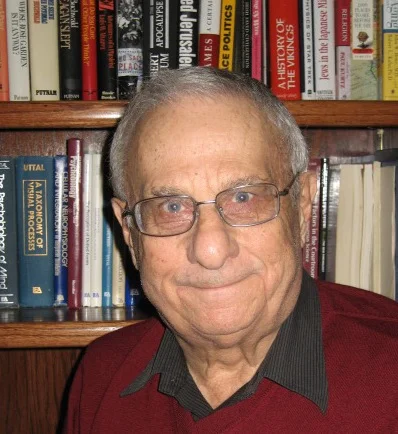Honoring William Uttal's Contributions to Cognitive Neuroscience (BS 132)
/Dr. William Uttal, who died last month at the age of 86, had a very unusual career, going from physics and engineering to psychology and cognitive science. I think his unique background contributed to the refreshing skepticism that he brought to the growing use of imaging (especially fMRI) in the cognitive sciences.
He was a prolific writer on the subject and back in 2012 I had the honor of talking with him about his book Mind and Brain: A Critical Appraisal of Cognitive Neuroscience. In addition to shedding light on the limitations of imaging (such as poor reproducibility), Dr. Uttal also argued that it was premature to abandon other psychological testing methods.
This month I am replaying that 2012 interview. Brain Science 132 includes a new introduction and closing remarks. While Dr. Uttal's writing was aimed at a technical audience I think it is important for listeners of all backgrounds to be aware of these issues because they remain as relevant as ever.
Listen in your Favorite Audio app: Audible, Amazon music, Pandora, Spotify, YouTube and many more.
FREE: audio mp3 (click to stream, right click to download)
Episode Transcript [Buy for $2]
Links and References
Uttal, W. R. (2011) Mind and Brain: A Critical Appraisal of Cognitive Neuroscience.
Uttal, W. R. (2009) Neuroscience in the Courtroom: What Every Lawyer Should Know About the Mind and the Brain.
Ihnen, S. K. Z., Church, J. A.. Petersen, S. E., & Schlaggar, B.L. (2009) Lack of generalizability of sex difference in the fMRI Bold Activity associated with language processes in adults. NeuroImage, 45, 1020-1032.
Ioannidis, J. P. A. (2005). "Why Most Published Research Findings Are False". PLoS Medicine 2 (8): e124.
BSP 46: How fMRI works.









